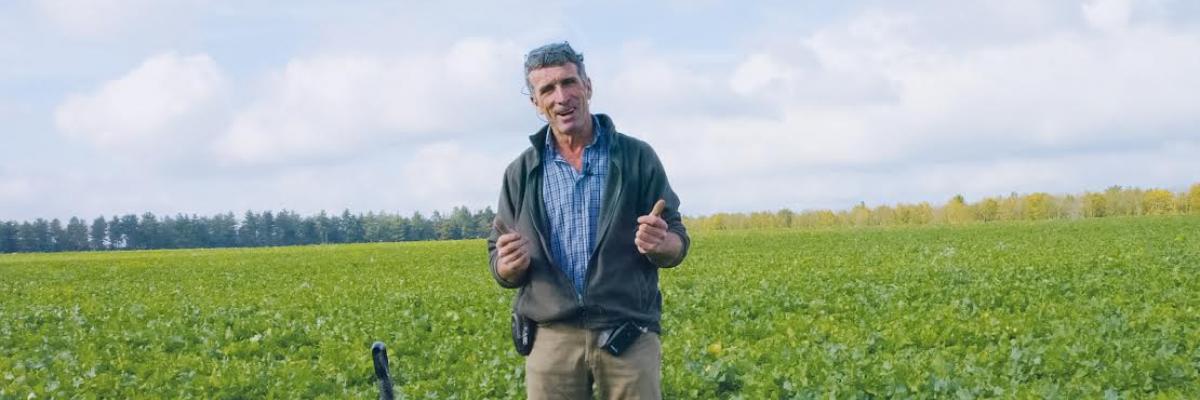
Julian Gold
Farm ManagerHendred Estate, Wantage, South Oxfordshire
Farm Manager
Hendred Estate, Wantage, South Oxfordshire
The Farm:
|
Listen here
|
- Julian Gold is farm manager of 800 hectares of Hendred Estate in Oxfordshire on the edge of the Berkshire Downs. The farm typically has a high pH (8.2) silty clay loam over chalk soil and a 6-year rotation of oil seed rape (OSR), winter wheat, spring barley, spring or winter beans, winter wheat, winter barley or second wheat, then back to OSR. There is a small area of permanent pasture and a sheep flock graze the cover crops.
- He talks about motivations - how he transitioned from "the industrial bandwagon" of piling inputs into crops, lots of fertilisers, lots of chemicals, and being part of the problem, to being part of the solution - and farming in a way that is less harmful to the environment and biodiversity.
- He outlines his soil health and carbon capture strategy; explaining his primary aim is to grow big high yielding crops that are photosynthesising hard and to also grow cover crops wherever possible between winter and spring crops to try and keep root exudates. He tries to do reduced or no till (and direct drill) whenever he can - to minimise cultivations, and to return all the crop residues where possible. He also runs a 10m controlled traffic system which has reduced trafficking of the soil to 20%.
- He describes his multi species cover crops, how he manages them (including using sheep to graze them), and how he manages straw residues.
- He also describes his trialling of biological methods of pest control to build ecological processes on the farm and reduce his input bill. He talks about his involvement with ASSIST (a large research project with the Centre for Ecology and Hydrology looking at beneficial insects on-farm), where he has been growing flowering strips down the middle of fields (90m apart), and mentions some of the main benefits he has observed.
- He refers to the ways in which he wants to build on reducing nitrogen (N) use; including using under stories of clovers and yellow trefoil, and companion cropping.
- He talks about the impact of what consumers want on agroecological farming practices - and the importance of having a product you can get a premium for.
- Finally, he describes his perfect vision of a farming system and how he would like to see his farm, or the way that he farms, develop in the future.“If UK agriculture is going to reduce its carbon footprint to zero by 2040 (which is what the NFU wants to do), we can’t do that without reducing N fertiliser substantially.”
Header image credit: Cotswold Seeds. All other images courtesy of Julian Gold. All Rights Reserved.



